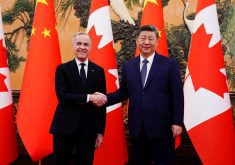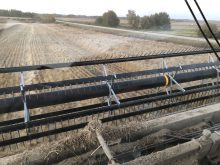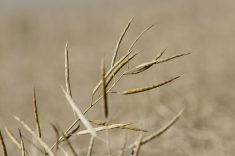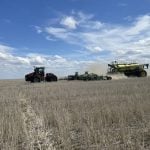The most concerning aspect of Canadian farmers caught in a trade dispute between China and Ottawa is the lack of surprise.
The federal government knew China was likely to target Canadian canola exports before it placed 100 per cent tariffs on Chinese electric vehicles and a 25 per cent surtax on imports of steel and aluminum.
China typically enacts retaliatory measures on food imports from troublesome trading partners, including barley from Australia and pork, dairy and brandy from the European Union.
Read Also
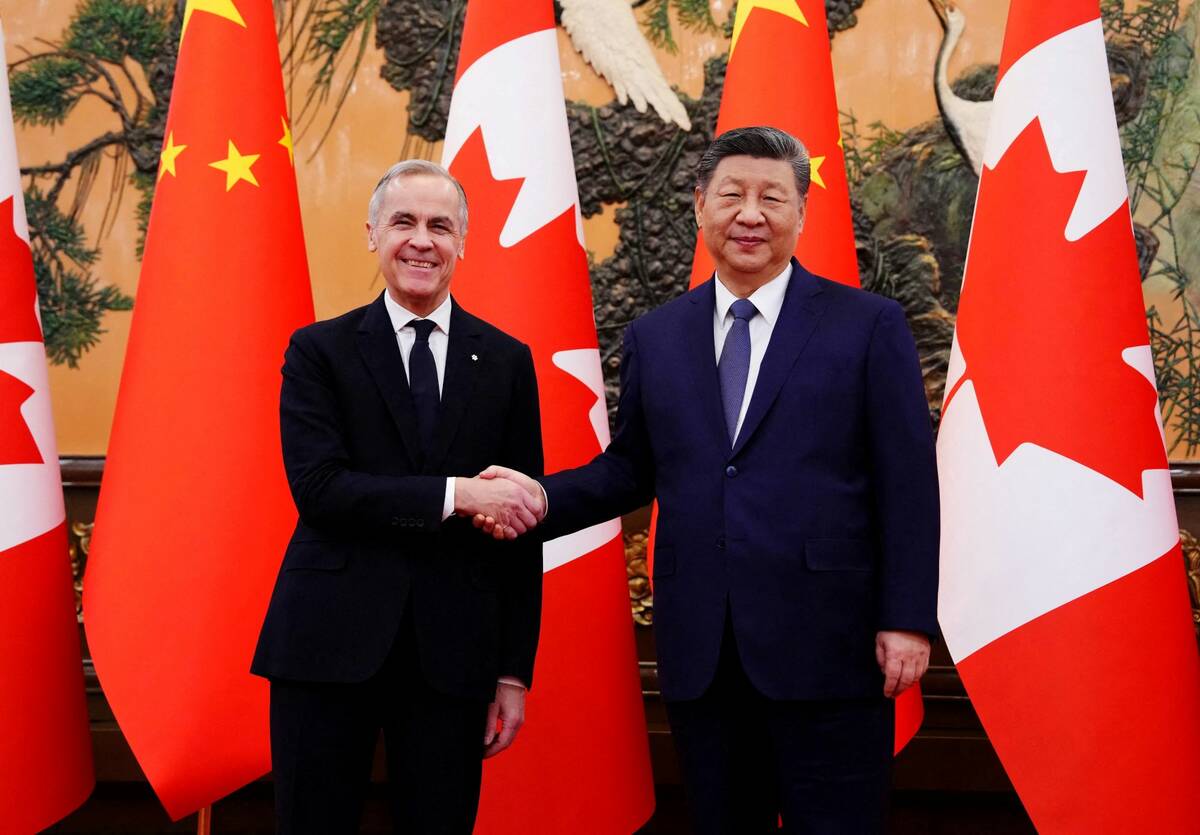
Pragmatism prevails for farmers in Canada-China trade talks
Canada’s trade concessions from China is a good news story for Canadian farmers, even if the U.S. Trump administration may not like it.
The last time Canada and China had a spat, over the potential extradition of Huawei chief financial officer Meng Wanzhou to the United States, China alleged canola shipments from Canada contained certain weed seeds and pathogens and revoked export permits from Richardson and Viterra.
This cost the canola industry $1.5 to $2.3 billion, according to the Canola Council of Canada.
China is a powerhouse purchaser of agricultural goods. It is the world’s largest oilseed importer, so when it threatens a trade disruption, the effect on trading partners is immediate and significant.
It was no surprise that nearby canola futures plunged as the market expressed anxiety about Canada potentially losing its top customer. China announced Sept. 3 that it plans to start an anti-dumping investigation into canola seed imports from Canada.
It was also unsurprising that Canada copied the U.S. tariffs on Chinese EV, steel and aluminum because policymakers don’t want Canada to become a target of the protectionist rhetoric that is bound to escalate as the U.S. presidential race heats up.
There are legitimate concerns about Chinese practices that can threaten economic development in North America by undermining market competition. If Canada is portrayed as a backdoor for Chinese goods, including electric vehicles and aluminum, trade with our most important trading partner could be at risk.
Matching U.S. tariffs on Chinese goods may help us stay under the radar of what is bound to be an ugly election south of the border.
It is also no surprise that all federal parties seem to support Canadian tariffs on Chinese goods because the federal election is likely to happen sooner rather than later. In August, Conservative leader Pierre Poilievre called on the federal government to impose tariffs on Chinese electric vehicles and associated parts. So, Prairie farmers should not expect the representatives they helped send to Ottawa will come to their aid on this file.
All federal parties need success in central Canadian ridings where support for the automotive sector is popular, including the billions of dollars Ottawa recently allocated for battery production facilities in the region.
With that in mind, it is unsurprising that western interests are being sacrificed for those of Ontario and Quebec.
The tariffs on Chinese imports are approaching trade war territory, and we should not be surprised if this dispute drags on or includes more agricultural products.
China is limited in the retaliatory measures it can take against the U.S. because the latter is a much more important market and powerful country.
Instead, China tends to make examples of less powerful nations with which it has disputes, as Canada experienced with the Meng Wanzhou incident.
So, it is no surprise if China again attempts to make an example of Canada, nor should farmers be surprised that they again have to take one on the chin for political posturing that has absolutely nothing to do with the choices they make while running their farms.
Karen Briere, Bruce Dyck, Barb Glen, Michael Robin, Robin Booker and Laura Rance collaborate in the writing of these editorials.





